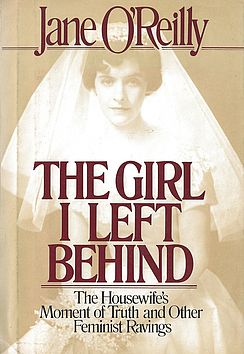Credits
Acknowledgments
The initial research funding that contributed to this exhibit came from a Ms. Foundation for Education and Communication grant. We would like to thank Patricia Carbine, president, Suzanne Levine, Letty Cottin Pogrebin, Gloria Steinem and Mary Thom for their early support.
We would also like to thank Debra Zimmerman for our partnership with Women Make Movies, and Amy Aquilino and Julie Whang for coordinating with their filmmakers.
For giving us permission to republish copyrighted materials, our special thanks go out to Kim Erle, Donna McAlpine, Mark Rabinowitz, Mark Balsam, and all of our filmmakers. We are also grateful to the photographers and artists who have allowed us to republish their work.
We would like to thank Victoria Beliveau, Maureen Santelli and Angela Paladino for helping us prepare materials.
For reviewing our project and providing invaluable advice and criticism, we would like to express our wholehearted gratitude to the following people:
Elaine Abelson, The New School for Social Research
Julia Alvarez, Middlebury College
Felicia Bell, Rosa Parks Museum, Troy University
Joyce Berkman, professor emerita, University of Massachusetts
Patricia Bonomi, professor emerita, New York University
William Chafe, professor emeritus, Duke University
Maria Cotera, University of Michigan
Kim Fountain, Pride Center of Vermont
Syd Golston, M.A., M. Ed, Past President (2009-2010), National Council for the Social Studies
Eliza McFeely, Moorestown Friends School
Mika Moore, licensed 7-12 Social Studies and Special Education teacher, PhD student in Educational Leadership and Policy Studies at the University of Vermont
Sujata Moorti, Middlebury College
Claire Potter, The New School
Charles Romney, University of Arkansas
Rachel Seidman, University of North Carolina
Kathryn Kish Sklar, Binghamton University
Kimberly Springer, independent scholar
Amanda Strauss, Radcliffe Institute, Harvard University
Katherine Turk, University of North Carolina
Michael Scott Van Wagenen, Georgia Southern University
Judy Tzu-Chun Wu, University of California
Susan Yohn, Hofstra University
University of Vermont Interns: Ashlee Payne, Ellena Erskine, Sofia Hurwitz , Grace Seta, Danielle Allen
How to Navigate our Interactive Timeline
You will find unique content in each chapter’s timeline.
Place the cursor over the timeline to scroll up and down within the timeline itself. If you place the cursor anywhere else on the page, you can scroll up and down in the whole page – but the timeline won’t scroll.
To see what’s in the timeline beyond the top or bottom of the window, use the white “dragger” located on the right edge of the timeline. (It looks like a small white disk with an up-arrow and a down-arrow attached to it.) If you click on the dragger, you can move the whole timeline up or down, so you can see more of it. If the dragger won’t move any further, then you’ve reached one end of the timeline.
Click on one of the timeline entries and it will display a short description of the subject. It may also include an image, a video, or a link to more information within our website or on another website.
Our timelines are also available in our Resource Library in non-interactive format.
Timeline Legend
Yellow bars mark entries that appear in every chapter
This icon indicates a book
This icon indicates a film
1971 The Click! Moment
The idea of the “Click! moment” was coined by Jane O’Reilly. “The women in the group looked at her, looked at each other, and ... click! A moment of truth. The shock of recognition. Instant sisterhood... Those clicks are coming faster and faster. They were nearly audible last summer, which was a very angry summer for American women. Not redneck-angry from screaming because we are so frustrated and unfulfilled-angry, but clicking-things-into-place-angry, because we have suddenly and shockingly perceived the basic disorder in what has been believed to be the natural order of things.” Article, “The Housewife's Moment of Truth,” published in the first issue of Ms. Magazine and in New York Magazine. Republished in The Girl I Left Behind, by Jane O'Reilly (Macmillan, 1980). Jane O'Reilly papers, Schlesinger Library.

